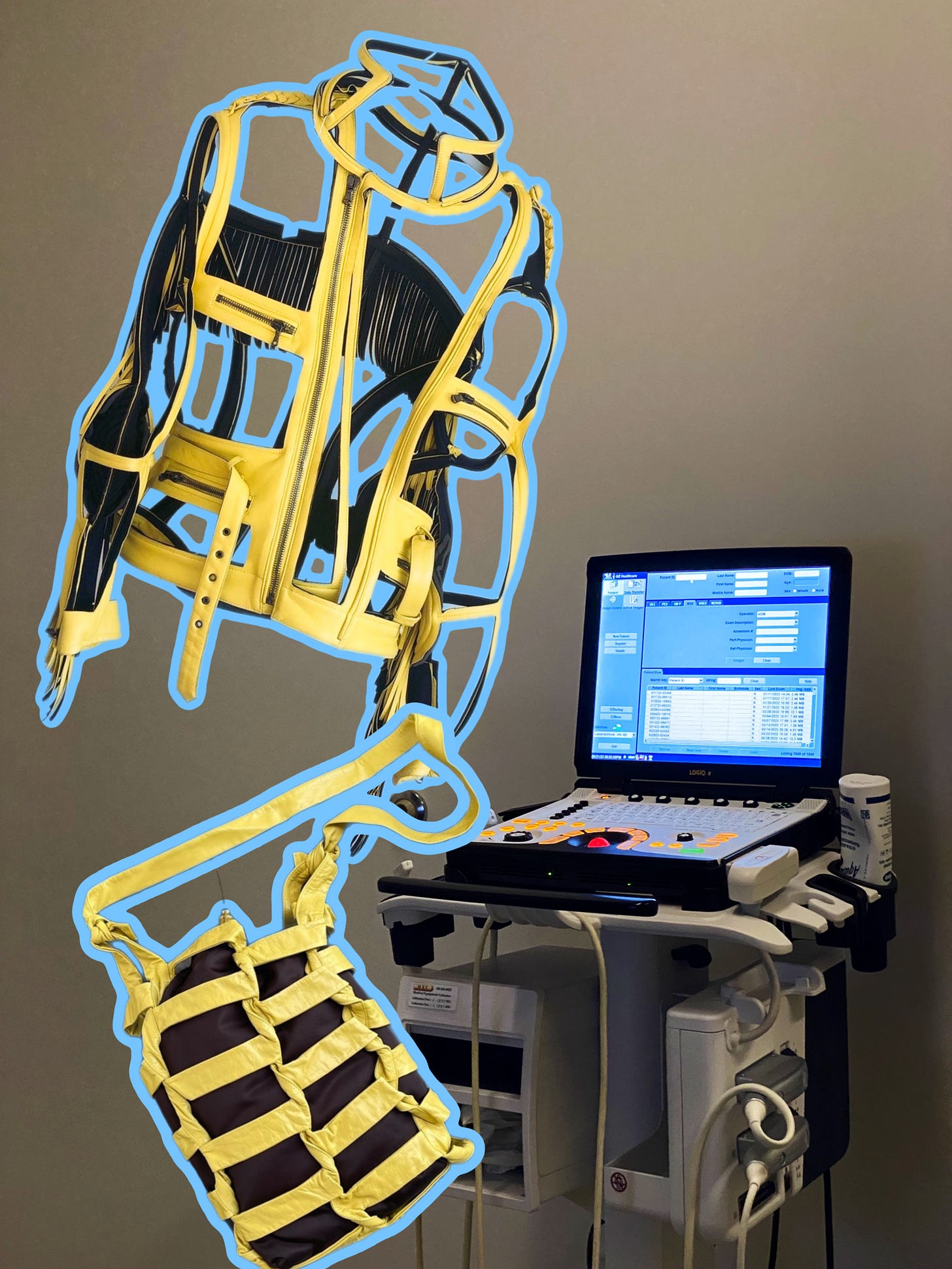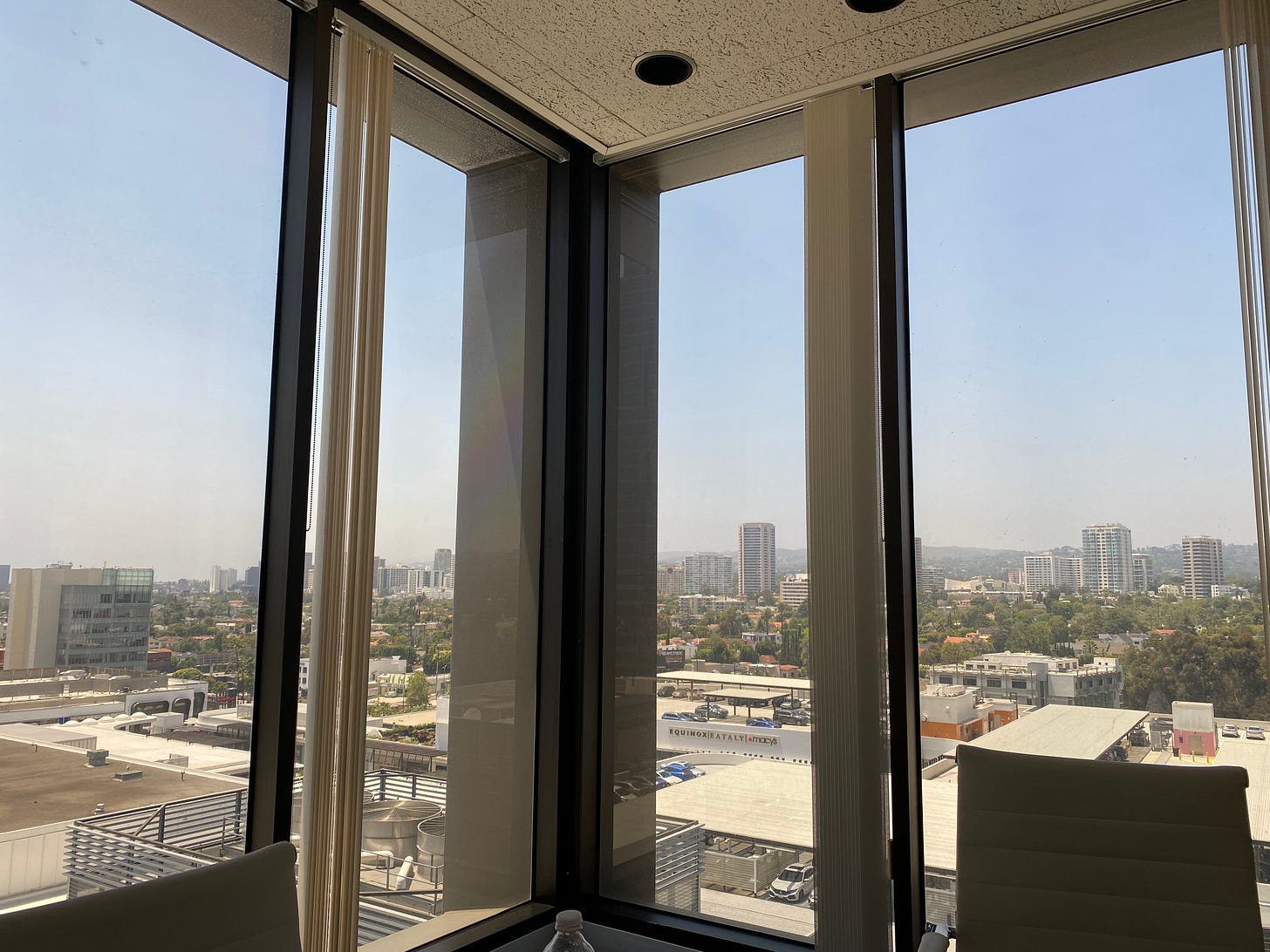How to pivot
Less about labels, more about talents
A lucky few of us are born knowing exactly what we want to do with our lives, with a clear and obvious trajectory. I’m always amazed by famous creatives who seem to have had an undeniable gift from birth—like chefs, artists, fashion designers, or piano prodigies.
The reality is that most people don’t have a single focus, and will pivot at some point in their lives, from one field of study, career path, or lifestyle to another. Maybe they will pivot multiple times—the true chameleons among us.
So why can pivoting often feel so hard?
And why do we get conflicting advice about pivoting our work? We’re told as youngsters we can do anything we want, but once we choose, years spent studying and working in a particular space can feel like a waste if we decide to pursue something different down the road.
Many people feel trapped in their careers because they’ve grown accustomed to a salary or quality of life that would change if they were to say, open a coffee shop instead of working in an office.
I believe course-correcting in life is normal and natural, and that pivoting is a huge part of growing and evolving as individuals.
As a society we should adopt a more open mind toward people who choose to tear down and build anew in their lives.
econami
Highlight your underlying skills
Does anyone ever truly pivot?
The key to a successful pivot is a story to explain where you were and where you want to go, and why. I know this first-hand because I chose in my late 20s to pursue what has always consumed most of my brain bandwidth: fashion and retail.
Problem was, I didn’t have the steadfast belief in my own skills, and so my transformation felt clunky and awkward.
Looking back now, midway through my working years but with one pivot under my belt, I can identify the common skills that I have used in all of my jobs, from research and public engagement to marketing for an online fashion marketplace.
Though the labels may be different, my valued talents have always centered around communication, empathy, emotional intelligence, and critical thought. Being organized and a good team player have helped too.
In other words, we can learn new skills and retrain our brains for new roles, but our deepest talents remain the same, applicable to an almost endless variety of jobs, businesses, and industries.
It’s gratifying to recognize that I did actually reinvent myself, from working in urban planning in Tampa, to studying business in Italy, and finally to living in Los Angeles and building a life almost completely from scratch.
“Pizzy Party” featuring Eckhaus Latta, Khaite, Bottega Veneta, Jellycat, and still life from Quarter Sheets Pizza Club in Echo Park
But it wasn’t without pain, heartache, or humility. I wonder if I could have pivoted without an expensive master’s degree, or if my story would be different had I chased my desire earlier.
The conventional working world may not recognize pivots as positive, but maybe it should.
Certainly it’s hard to replicate years of institutional knowledge and industry-specific gut instinct, but aren’t people who adapt and pursue change ultimately better-suited for a world that’s rapidly morphing beneath our feet anyway?
AI is poised to change the face of society, as we’re able to hand over our most tedious, repetitive, or computative tasks to ultra-intelligent artificial brains. The fundamental question now becomes: How can our uniquely human abilities still be valuable to a changing world?
Skip school, learn by doing
A friend of mine was recently rejected from a grad program for marketing, and was crestfallen. It’s a terrible feeling to be told no when all you want is to learn, to better yourself, and to be challenged in a new way.
Universities have many reasons for who they accept and reject, but as someone who had similar experiences not long ago, my reaction to his story was twofold: Try again (if you’re dead-set on going back to school).
And rather than looking for an institution, jump in and learn by doing if it’s something you’re curious about.
“See-Thru”
It’s easy to feel as if we must be given permission to do something new with ourselves, to be validated in our desires for other career paths by academia or by hiring managers, etc.
The reality is that many people who want to change start by simply doing.
They pick up a book, they start a new habit, and they begin to build, by taking a class, reading a book, or even taking an apprenticeship or internship in a new field to learn from the pros and taste-test before committing to a new path.
Though it’s not a proxy for classroom learning and shared discussion and debate, the internet is now full of answers to most of our questions and curiosities—and doing in real time is infinitely more educational than speaking in hypotheticals, at least in my experience of pivoting.
When I was working in transportation planning in my 20s and felt listless, and often investigated pricey, prestigious schools for graduate programs, a colleague of mine who was easily one of the smartest people I have ever met (Terry Walters!) said to me: If you want to do it, just do it.
Between Google and the public library, the disciplined learner can self-educate quite well and for little money.
I am employing this strategy to build and grow this very newsletter.
Confidence in oneself is key
Back in 2015, I chose to go back to school anyway, feeling like I needed the structure of a classroom, a syllabus, and the all-important networking function of business school. Some have said it is the only value of an MBA program.
And it worked, because I eventually landed a job working for fellow alums of Bocconi—which definitely felt like a deciding factor in my hiring.
I was also craving escape from the U.S.A., from the death of my mother, and from the life I had grown to hate. But it was a very expensive couple of years of non-earning, living abroad, and postponing the critical part of any reinvention: spiritual conviction.
view from italist offices in Century City, Los Angeles
Believing in ourselves is such an important piece of the pivot puzzle, maybe even more important than formal training.
I often wonder if I’d simply applied myself, saved money, and then moved in the direction of my goals, if I’d have had the same outcomes.
Is it possible that the (other) key to a successful pivot is simply having conviction and confidence? And perhaps, a willingness to be “green?”
Learning isn’t always easy on the ego, especially as we grow older and more self-assured. One path to feeling confident is to have done the work, studied the subject, and to be able to apply those skills. The other is to trick yourself into believing.
The simplest way I know of doing so is to practice meditation and mantra. Changing your self-beliefs is as simple as adjusting your repetitive thoughts, and changing those is as simple as quieting your stream of consciousness for a few minutes each day.
The most powerful mantra I know of to manifest change and to grow a sense of inner power is to start with “I am” and end with whatever it is you want to become.
I am…an artist. I am…a writer. I am…a masterful UX designer.
Hobbies as income streams
There’s a lot of talk lately about the gig economy, about passive income, and as I mentioned before, about how AI will undoubtedly change how we treat education, careers, and even our own identities. Perhaps “job” will become less relevant in our evaluations of one another.
Technology has enabled so many new ways of earning a living, and I imagine it will continue to impact our underlying economic system.
The days of training for a particular career, following that path closely, and sticking with it through retirement, broadly speaking, are over. Doctors may decide to become cobblers, and lawyers could pivot to motivational speaking and topic facilitation. I know at least one of the latter who’s done just that.
“Purple Petals” featuring two tasteful and subtle leather sneaker designs from (L-R) Rick Owens (the Luxor) and Maison Margiela (the Replica) in gorgeous shades of purple I am digging. To me the view of a shoe from above has always been as important as the view in the mirror.
Living in L.A., being surrounded by dreamers and pivoters and artists, has taught me that radical reinvention is possible. And no existing career path can prevent you from pursuing something you enjoy while also being compensated fairly.
Lots of people here pursue their hobbies to create content or art or screenplays, while also meeting their basic needs with full-time or part-time jobs. OnlyFans isn’t off the table. Many niche creators now ask for nominal support on Patreon in order to keep posting and sharing content.
Pursuing a hobby that could lead to income down the road requires less concern for mainstream labels and LinkedIn headlines and more laser focus on one’s holistic personal goals, which may be clear or may require additional digging and self-work.
Step Back
In the last few years, with all that has gone on, I sense many people have examined their ambitions and decided to pivot.
My best advice if you are one of them is to be clear on your intention, be it more fun, more money, or more freedom—I’ll take all three!—and then take small steps toward it each day and each week. Ignore the ego’s need for perfection and humble yourself by fumbling around until you find your flow.
Pivoting isn’t immediate and so you may be in for a lot of small steps until you see major change.
Step through the creepy red door
Perhaps the axiom of “two steps forward and one step back” is applicable here, but should mean two steps of action and one step of reflection, before advancing again, in order to evolve oneself and make progress toward new and different goals.
Pivoting is probably going to become the norm, if AI has anything to say. I hope these ideas convinced you that it’s possible and not entirely painful too.
Share this post if you enjoyed it!
Many thanks to friends who inspired this post, all encouragement, and to Susan for edits!









I admire your candidness in writing this newsletter. Looking at ourselves, where we were, where we are and having the courage to really see where we want to be are an important part of life’s journey . In pivoting I was always mindful of a sign hanging in my office: Don’t give up 5 minutes before the miracle.